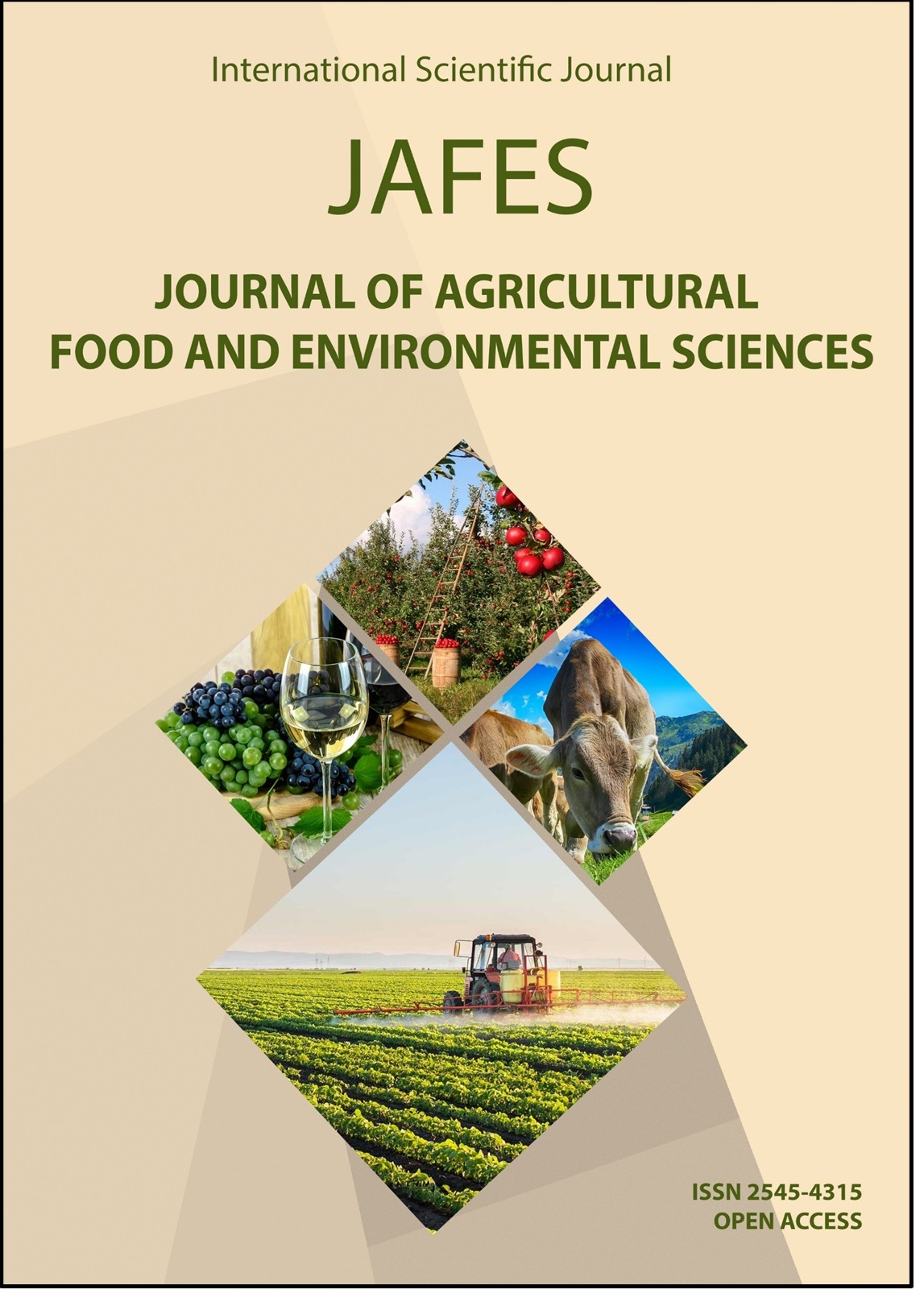THE NECESSITY OF KNOWLEDGE, SERVING THE NEEDS OF THE BIO-ECONOMY IN BULGARIA
##plugins.themes.bootstrap3.article.main##
Апстракт
The main challenge of the bioeconomy is to achieve economic growth, increase the competitiveness of the economy, balanced production and consumption of products, conservation of natural resources, improve the marketing of farms. The aims of this article is to analyze the knowledge needs for the bioeconomy in Bulgaria. We first present the socio-economic benefits of the bioeconomy, with a focus on agriculture as a leading sector, and then identify the basic needs. A three-step approach is applied to cover all stakeholders directly involved in bioeconomic knowledge acquisition: Education and awareness; Dialogue and consult; Co-creation of new knowledge based on cooperation and training. The results imply: identifying the knowledge and technological knowledge needs required for regional specialized bioeconomies; clarification of the knowledge delivery mechanism; knowledge transfer networks; assessment of knowledge in the bioeconomics. The need for bioeconomic knowledge would support a economic growth to more resource efficient use. Increasing the knowledge base and understanding of specific areas of the bio-economy will be based on obtaining more data, generating better information and systematic analysis.
Downloads
##plugins.themes.bootstrap3.article.details##
Референци
Bonaccorso, M. (2014). The European Path to Bioeconomy Runs through Clusters. In “Renewable Matter. International Magazine on the Bioeconomy and the Circular Economy” (1/2014). Available at: www.renewablematter.eu/art/22/The_European_Path_to_ Bioeconomy_Runs_through_Clusters.
Elevitch, C., Mazaroli, N., Ragone, D. (2018). Agroforestry Standards for Regenerative Agriculture Sustainability 2018, 10, 3337.
European Commission (2012a). Communication from the commission on EU Bioeconomy Strategy & Action Plan ”Innovating for Sustainable Growth: A Bioeconomy for Europe”. COM (2012) 60.
European Commission (2012b). Commission Staff Working Document. ”Innovating for Sustainable Growth: A Bioeconomy for Europe”.
European Commission (2015). Sustainable Agriculture, Forestry and Fisheries in the Bioeconomy - A Challenge for Europe. SCAR 4th foresight exercise. DG Research and Innovation. Directorate F – Bioeconomy. Edited by Barna Kovacs.
European Commission (2016). A strategic approach to EU agricultural research & innovation. Final paper. Outcome of the European Conference: ‘Designing the path’ - 26-28 January 2016. Brussels: DG Agriculture and Rural Development.
European Commission (2019). Jobs and Wealth in the European Union Bioeconomy.
FAO (2018). Assessing the contribution of bioeconomy to countries’ economy. A brief review of national frameworks.
Ministry of Agriculture, Food and Forestry (MAFF), Agrostatistics.
National Forest Biomass Energy Action Plan 2018-2027.
National long-term program to promote the use of biomass for the period 2008-2020.
National Science Program on Healthy Foods for a Strong Bio-economy and Quality of Life
National Scientific Program on Reproductive Biotechnology in Animal Breeding in Bulgaria.
National Strategy for the Development of Research in the Republic of Bulgaria 2017-2030 (Council of Ministers Decision No 282 of 19.05.2017).
Ronzon, T., Barek, R. (2018). Socioeconomic Indicators to Monitor the EU’s Bioeconomy in Transition, Sustainability 2018, 10(6), 1745.
Ronzon, T., Santini, F. & M’Barek, R. (2015). The Bioeconomy in the European Union in numbers. Facts and figures on biomass, turnover and employment. European Commission, Joint Research Centre, Institute for Prospective Technological Studies, Spain, 4p.
Schmidt, O., Padel, S. & Levidow, S. (2012). The Bio-Economy Concept and Knowledge Base in a Public Goods and Farmer Perspective. Bio-based and Applied Economics, 1(1): 47-63, 2012.
SWD (2017). Review of the 2012 European Bioeconomy Strategy, 13.11.2017.
UN (2018). Progress towards the Sustainable Development Goals. Report of the Secretary-General.

